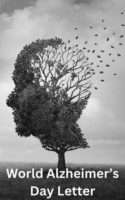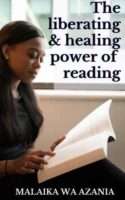What was seen as a victory for the rule of law in South Africa, which has been lauded as an important political lesson for the international community, has triggered widespread riots, looting and violence across the country. Safe to say that on 29 June, when the South African Constitutional Court sentenced Former President Jacob Zuma to 15 months in prison for contempt of court, no one expected South Africa to go up in flames.
And, in true South African fashion, the debates on whether the violent unrest is ethical and moral are heated. Many are questioning what the active participants in the unrest aim to achieve, whether their actions can produce those desired results and exactly at what cost will these results be achieved, if at all.
Consider that dozens of lives have been lost so far, critical infrastructure has been severely damaged, roads are blockaded, coronavirus vaccination processes have been disrupted, and thousands have lost their jobs, with many more to follow. Many business owners lost their establishments, with no hope for recovery in the future.
As I write this, I am sure that friendships and family bonds are being tested and potentially destroyed based on which side individuals are taking on this matter. Are they for or against looting, riot and violence? Many argue that the consequences will be felt by the poorest of the poor, who make up the majority of the citizens in this unequal South Africa. The people on the other side of the fence ask a question: What choice do these people who have been branded ‘thugs’ have?
I think it’s critical to mention that these quarrels are taking place in various centres of privilege and several corners of desperation, from people who are not affected, those who are indirectly affected, and those directly affected.
People are not listening to each other with the intent to understand but to respond, which leaves a lot of room for brewing hatred. How do we then bring a measure of understanding? Unfortunately, the answer does not come with an immediate and practical solution but rather a complex self-conscious choice that puts you to the task of stepping outside of your own experiences and expectations. I am, of course, talking about empathy.
What is empathy? It’s the ability to understand the thoughts, feelings and behaviour of another person. In a way, it’s walking a kilometre in someone else’s shoes to understand why they think, feel, do things and act in the way that they do.
Empathy encourages you to remember that we are all human and that we can be justified in our actions and reactions in certain circumstances. Especially in circumstances where we are desperate to survive and in others where we seek to protect ourselves, our families and the possessions we’ve worked hard for.
I am bringing up empathy because it quickly became clear to me that while this may have been ignited by the arrest of an individual who still commands support long after his reign, it is no longer about that. It’s a showcase of growing pains that had been left unattended to and waiting for such an opportunity to erupt. In a live news interview, one of the brave journalists on the ground asked a South African the pressing question on many opposing minds; “Why are you doing this?”. To which he responded by saying, “I have a child on the way; I am employable but unemployed and saw an opportunity to get items I needed for my family.”
The collective lived experiences of poor working-class South Africans reveal decades of extreme poverty, persistent suffering and crippling hopelessness. And, while they’re a glaring residue of colonialism and apartheid systems that ensured that the poor remain eternally enveloped in perpetual suffering, the successors picked up where the heads of the above-mentioned systems left off. The new democratic South Africa is excruciatingly slow to progress and shows no sign of reform of the status quo. The result of that is a devastating socio-economic state that further widens the divide.
To make matters worse, the South African government has comfortably become synonymous with corruption. Allow me to remind you that we’re currently living in the middle of a pandemic that even experts have no knowledge of how to better control and manage beyond the measures of social distancing, wearing masks, washing of hands, sanitizing and vaccinations, which are slow to come. Our healthcare system is overwhelmed and ill-equipped to handle an overflow of coronavirus cases alongside already existing healthcare challenges. But our health minister was placed on special leave over a corruption scandal that involves an irregular government contract. More than that, thousands of people have struggled to access the relief grant that was set up to put food on their tables, literally.
Bear in mind that these are only two recent instances of limitless examples that paint a clear picture of how dire the situation is in this country. It seems to me, then, that this unrest was inevitable. I implore you to understand that this is not me co-signing or excusing the riot, looting and violent conduct. Lives were lost, jobs were lost, and reports showing that the worst affected establishments are Black-owned small, micro or medium enterprises, who will possibly never recover, give me the full context of the gravity of the devastating consequences.
But as the late Martin Luther King Jr. so eloquently put it, “a riot is the language of the unheard,” and the unheard will use any means within their reach to try to ring the alarm and beg to be heard. The ugly truth is that collateral damage is inherent in a revolution.
So, the only way for us to navigate our current circumstances is through the practice of empathy. That way, we can be patient with one another and broaden our interest in our shared and different plights. Perhaps in doing that, we can unify and find a practical solution that will move us forward and ensure that we never find ourselves in such a position again.





